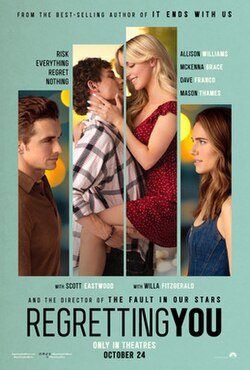Nuremberg
Posted on November 6, 2025 at 5:51 pm
A-| Lowest Recommended Age: | High School |
| MPAA Rating: | Rated PG-13 for violent content related to the Holocaust, disturbing images, strong language, and themes including suicide, smoking, and brief drug use |
| Profanity: | Some strong language |
| Alcohol/ Drugs: | Alcohol, drugs, and smoking |
| Violence/ Scariness: | Wartime and Holocaust references, archival scenes from concentration camps |
| Diversity Issues: | A theme of the movie |
| Date Released to Theaters: | November 7, 2025 |
Those who have studied 20th century history know that after WWII the Allies did something no governments had ever done after a surrender. They held a formal trial, not about Germany’s acts of war but about the “crimes against humanity” that tortured, imprisioned, stole from, and murdered its own people, and tried to eradicate citizens based on their religion, disability, and sexual orientation. They were known as the Nuremberg trials.

But even those who have studied that process may not know that the American military also assigned its own psychiatrists to interview the first 22 German officers and political leaders. It was not, as in an ordinary criminal trial, to determine their ability to understand the proceedings and in some cases their culpability for their decisions, but to try to understand what kinds of minds would create what we now call the Holocaust. Those questions have continued to confound us for 80 years, and continue to be explored by historians and filmmakers, including recent documentaries like “The Last Days,” “Shoah,” and “The Grey Zone” and narrative films like “The Zone of Interest” and “A Real Pain.”
“Nuremberg,” based in part on the book The Nazi and the Psychiatrist by Jack El-Hai, follows three intersecting stories, the efforts of Supreme Court Justice Robert Jackson (Michael Shannon) to get the Allied countries together to agree on the trial, the charges, and its proceedings, the interviews military psychiatrist Douglas Kelley (Rami Malek) conducted with top Nazi official Hermann Göring (Russell Crowe), and Howie Triest (Leo Woodall) a young military officer assigned to Kelley as a translator.
Jackson’s plan seems impossible, “a logistical nightmare.” “What you’re talking about is trying them in some sort of legal limbo that doesn’t exist using laws that haven’t been written yet,” he is told, and reminded that Germany never attacked the US. He would have to get the involvement of all of the Allies to participate, including the USSR. He insists, “The world needs to know what these men did.”
There is an optimism behind it, an idea that if the top Nazis were both convicted and diagnosed, it would help make sure that nothing like the Holocaust would ever happen again.
The essence of the film is in the interviews/conversations between Kelley and Göring, and the two Oscar-winners and writer/director James Vanderbilt’s script make them among the most riveting screen moments of the year.
Vanderbilt is superb in revealing the complexity of the moral and legal issues. Kelley is trained to give therapy, with patient confidentiality. Jackson wants him to use his sessions to find Göring’s vulnerabilities, to help with the prosecution. General Eisenhower insists that there be no executions without a trial, giving the men the opportunity to defend themselves. The risk of failing to find them guilty is the risk of making them martyrs, allowing atrocities to happen again. Jackson and the military are also very aware that the humiliation Germany suffered at the end of WWI played a big part in Hitler’s rise. Göring tells Kelley why he followed Hitler: “Along came a man who said we could reclaim our former glory. Would you not follow such a man?”
Jackson reminds us that the war “started with laws,” and should end with them. They have to create a sense of fairness and justice without repeating the mistakes of the post WWI Paris Peace Conference that divided up German’s territories.
The movie is well paced, as a thriller, a courtroom drama, and an exploration of history and the human capacity for evil and for good. It is never didactic or heavy-handed. There are moments of humor and excellent performances by all.
Vanderbilt has a gift for telling details like Göring ripping the lace-edged hem of his wife’s slip to make a white flag of surrender as his car reaches the Americans, and then casually telling them to get his luggage, as though the American soldiers are baggage handlers.
When the military thinks Kelley is too sympathetic, they bring in another psychiatrist (Colin Hanks), who is clear that he is there to write a book about it. Kelley is disturbed by this unabashed acknowledgement of self-interest. The film lets us know that Kelley did himself write a book, though, 22 Cells in Nuremberg: A Psychiatrist Examines the Nazi Criminals. It is hard to find but well worth reading, especially its conclusion, calling for the same commitments we are still trying to achieve today. It is impossible to watch this film without being chilled by what happened in Germany. It is impossible not to think about the lessons we have failed to learn.
Parents should know that this film includes references to wartime violence and the Holocaust, with real archival footage of concentration camps. There is some strong language and characters drink, smoke, and use drugs.
Family discussion: Compare the Nuremberg trials to a later version, South Africa’s Truth and Reconciliation Commission. Which is better? When the current global conflicts are resolved, how should we treat those involved?
If you like this, try: “Judgment at Nuremberg.” a 1961 film about the later trials, with waning interest in pursuing the Nazi judges, exploring the issues of responsibility for those in lower-level roles. and the American Experience documentary, “The Nuremberg Trials“








